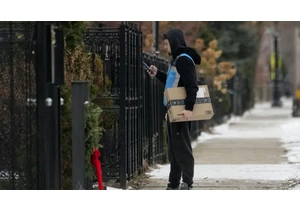Three in 10 of the Dutch population visit Stripchat, PornHub, or XVideos every month—compared to 16.4% of Germans. But both countries pale in comparison to Spain, where 59.4% of people log onto a porn site every month.
That’s according to a new analysis by Mathias Vermeulen, director of AWO, a data rights agency based in Europe. Vermeulen trawled through the data released by the three adult platforms, who come under the auspices of the Digital Services Act (DSA), which mandates that platforms over a certain size have to share user data. The three adult websites all are required to disclose their monthly active users, though as Vermeulen admits himself, the three appear to be using different methodologies to understand what makes a user of their platform.
Nevertheless, the data is insightful: Fourteen million French people appear to have used XVideos between February and May 2024, and 23 million Spaniards, according to the data. Italy also appears to be a voracious consumer of adult content, with 11.3 million monthly visitors to XVideos, and 2.5 million users on PornHub (in this case, between February and July 2024). It tells us about our porn habits, yes. But it also tells us about social norms, experts say.
“What’s quite interesting is that there are quite a few countries in the list with quite a high porn consumption that are quite conservative countries socially,” says Carolina Are, a Center for Digital Citizens innovation fellow at Northumbria University.
Are says that the stats highlight how powerful the DSA is in Europe, and how it differs from many other pieces of tech legislation out there already in force or making their way through the iteration phase towards implementation. “The DSA is a transparency machine, and transparency is currently what we don’t have,” says Are.
She points out that the DSA often asks simple but pointed questions that get to the heart of the issues people might want to know about, such as user numbers and platform operations. “I think it’s kind of unprecedented and needs to happen, because platform transparency reports are an absolute joke,” she says.
But there’s more we can learn from the data than simply how many users log on to the platforms from different countries. The user numbers are an indication of Europe’s regulatory might—and could provide solace for those who are victims of sexual image-based violence.
“The Digital Services Act was not initially designed with adult content platforms in mind,” says AWO’s Vermeulen. But it’s become a useful tool with which to include adult content platforms in its dragnet—and to get redress for those who need to compel the platforms to act against issues when they arise.
“These sites have become a hub for the distribution of image-based sexual abuse, a term used to cover all forms of taking or sharing intimate or sexual images without consent, including threats to share such images and altered images often known as fakeporn or deepfakes,” says Vermeulen. “This has left victims in an almost unwinnable fight to have such content removed, resulting in devastating harm.”
Now that they’re under the auspices of the DSA, there’s a shift in how those platforms must concede to its requirements. “The DSA can be used to compel major porn platforms to implement design changes and other mitigating measures to address this issue at a systemic level,” says Vermeulen.
It’s also a good way to bring sites that have often operated at the edges of society into the mainstream. “I’m a firm believer that people who work on and via porn sites deserve that transparency as well,” says Are. “If we want to legitimize these companies as proper businesses, to improve their operations, but also reduce the stigma against those that do that kind of work, then these companies need to be transparent.”
Autentifică-te pentru a adăuga comentarii
Alte posturi din acest grup

Ever since DeepSeek burst onto the scene last month, there’s been no short

Nowadays, when you hear someone talk about faxing, there’s a decent chance it’s the punchline to a groan-inducing dad joke. (Not that I would ever be guilty of such silliness, of course.

Amazon has agreed to pay nearly $4 million to settle charges that the e-commerce company subsidized its labor costs by taking tips its 


It’s game time for Meta’s wearables: The tech giant has bought two ad spots for its Ray-Ban Meta smart glasses during Sunday’s Super Bowl broadcast, including one that has Chris Hemsworth and Chri

If you scroll through your old photos from the mid-2010s—the golden era of Snapchat—chances are a fai

OpenAI is scouring the U.S. for sites to build a network of huge data centers to power
